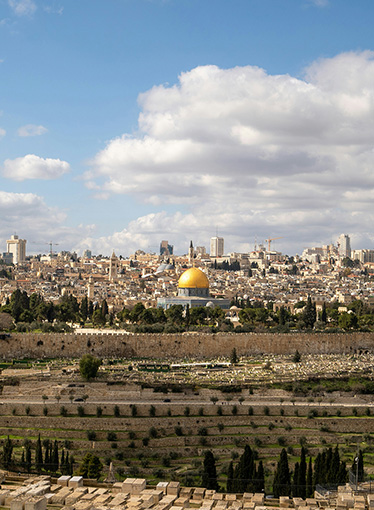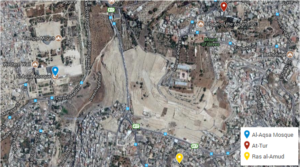Evacuations from High-Risk Locations Call +44 (0)1202 308810 or Contact Us →

Clashes At Al Aqsa Mosque and Security Risks
27 Jul 2017
On 20 July 2017, violent clashes broke out in Jerusalem’s Old City between Palestinian Muslims and Israeli police. The clashes were instigated because Israeli troops erected metal detectors at the entrance to the Al Haram Al Sharif Temple Mount complex. The move sparked mass protests from Palestinians throughout Jerusalem’s Old City, as it was felt Israel was trying to take control over the Muslim-run site; these quickly turned violent. Palestinians threw stones at Israeli police, who retaliated with tear gas. This escalated into live rounds being fired by both sides
Key Points
- Serious and violent civil unrest has occurred in Jerusalem over increased Israeli security measures at the Al Aqsa mosque complex.
- Palestinian authorities have temporarily frozen contact with the Israeli government.
- Israeli soldiers have since removed the metal detectors and other security measures, with the aim of reducing tensions in Jerusalem.
Situational Awareness
Civil Unrest: On 20 July 2017, violent clashes broke out in Jerusalem’s Old City between Palestinian Muslims and Israeli police. The clashes were instigated because Israeli troops erected metal detectors at the entrance to the Al Haram Al Sharif Temple Mount complex. The move sparked mass protests from Palestinians throughout Jerusalem’s Old City, as it was felt Israel was trying to take control over the Muslim-run site; these quickly turned violent. Palestinians threw stones at Israeli police, who retaliated with tear gas. This escalated into live rounds being fired by both sides. Protests have continued to varying degrees each day since. It is estimated that between three and five Palestinians have been killed so far, and around 140 wounded. Three Israeli settlers have also been killed in an attack linked to the unrest. Thousands of Israeli police have been deployed around the area, and all Palestinian men under the age of 50 were temporarily barred from entering the Old City. Israel has since removed the metal detectors, but protests have continued.
Solace Global Comment
The Al Aqsa mosque is part of the Al Haram Al Sharif (also known as Temple Mount) religious complex in Jerusalem. The area also houses the Dome of the Rock. The complex has great religious significance for both Muslims and Jews, and as such is politically sensitive. Jerusalem is currently controlled by Israel; this includes security for all religious sites. However, Jordan is the official custodian of the Muslim sites in the city. Israel has in the past been criticised for limiting Muslim access to the area due to security concerns. The religious complex has been subject to fragile arrangements which govern access, security and administration; these have been agreed by Palestinian, Jordanian, and Israeli authorities since the Israeli occupation in 1967. Changes to this status quo are greatly feared by Palestinians, who worry that Israel will renege on these agreements and stop them from visiting the site.
The reason behind the recent increase in security at Al Aqsa was an incident on 14 July 2017. Two Israeli policemen were killed when a small group of Palestinian men opened fire on them from within the religious complex. The metal detectors aimed to limit the smuggling of weapons on to the Al Haram Al Sharif site. Initially, the protests outside the Al Aqsa mosque were relatively peaceful. Palestinian worshippers refused to enter the religious complex, instead hosting mass open air prayers in the streets outside. Yet violence ensued after stones were thrown at police, who retaliated. At least three Palestinians have been killed by live rounds in the protests that have followed. The deaths have occurred in different areas of the city, indicating running and mobile battles between police and demonstrators. Demonstrations and violent protests have also been reported at other areas of Jerusalem and the West Bank. Unrest occurred in the At-Tur and Ras al-Amud areas of Jerusalem, and at the Qalandia checkpoint between Ramallah and Jerusalem. On 21 July, three Israeli citizens were also stabbed to death at an Israeli settlement near to Ramallah in the West Bank. The attack was linked to the Jerusalem protests.
One repercussion of the unrest is that Palestinian authorities have frozen all official contact with Israel. It is unclear whether this lack of contact will extend to security cooperation. This move is symbolic, and is unlikely to have any real impact on Israel. Several international actors have also condemned the security measures and tensions at Al Aqsa, including the Arab League and the United States. Jordan, as the custodian of Muslim sites in Jerusalem, has been heavily involved in peace negotiations between Israeli and Palestinian authorities. In addition, the UN Security Council met to discuss the crisis on 24 July.
On 25 July 2017, Israel decided to remove the metal detectors from the Al Aqsa site. An Israeli spokesman indicated that the metal detectors would be replaced with less intrusive surveillance measures. These are to be put in place over the next six months, during which time there will be an increase in police presence in the area. It is thought that Israel agreed to remove the detectors following diplomatic negotiations with Jordan. Yet despite these measures, tensions remain in the city. Following the removal of the metal detectors, Palestinians have continued to conduct mass prayers outside of the mosque complex. In addition, journalists and tourists are still being prevented from accessing Jerusalem’s Old City. On 26 July, Israel also removed security railings and an overhead bridge from the site. Senior Muslim religious officials have praised the move, and some reports have indicated that Muslims will return to pray at the Al Aqsa mosque tonight. Much of the violence in Jerusalem has receded, with demonstrations remaining relatively peaceful. It remains to be seen whether there will be renewed protests following Friday prayers on 28 June 2017.

SECURITY ADVICE
Civil UnrestHighTourists and journalists are still being denied access to much of the old city, including the Al Haran Al Sharif Temple Mount complex. Travellers should be aware there is an increased security presence throughout Jerusalem, especially in sites of religious importance. Increased checkpoints and security patrols have been noted. Checkpoints with enhanced security include Qalandiya, Shuafat, and Lions Gate. There is likely to be an increase in travel disruption while entering and exiting Jerusalem as a result of these measures. If travelling within Jerusalem, travellers should adhere fully to the instructions of Israeli security forces.
It is recommended that all demonstrations and protests are avoided. It is likely police will use forceful measures against demonstrators. Political gatherings may initially seem peaceful but can escalate quickly into violence. It would be advisable for travellers to maintain a low profile in the short-term and monitor local events closely.
Solace Global would advise clients to employ enhanced security measures when visiting Jerusalem. Airport meet and greet and a security driver for the length of a visit should be minimum security precaution. Travel tracking technology with an intelligence feed should be also be used. This will enable travellers to stay updated of any security developments and inform others in case of an emergency. Travelers should maintain situational awareness at all times, and may wish to employ executive close protection.